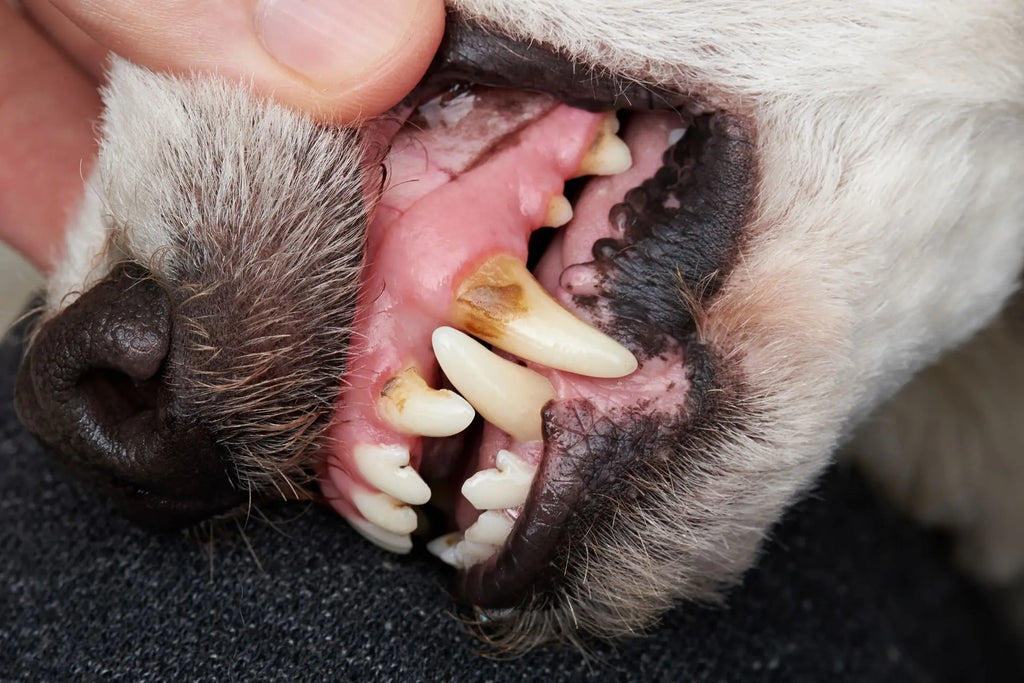As a dog owner, witnessing your furry friend suffer from dental issues can be heartbreaking. Recently, my dog lost almost all of his teeth due to severe tartar buildup. This experience opened my eyes to the importance of dental health in dogs and the consequences of neglecting it. In this blog, I’ll share insights into tartar buildup, the impact it has on dogs, and how to maintain your pet’s dental health to prevent similar issues.
What is Tartar Buildup?
Tartar, also known as dental calculus, is a hard deposit that forms on a dog’s teeth when plaque—a soft film of bacteria—mineralizes. If not removed through regular dental care, tartar can lead to various dental problems, including:
- Gingivitis: Inflammation of the gums, leading to redness and swelling.
- Periodontal Disease: A more severe form of gum disease that can result in tooth loss.
- Infections: Bacteria from tartar can enter the bloodstream, affecting other organs.
How Tartar Affects Dogs
-
Pain and Discomfort: As tartar accumulates, it can cause significant pain and discomfort for your dog, making it difficult for them to eat or play.
-
Tooth Loss: Severe tartar buildup often leads to tooth decay and loss. In my dog’s case, the majority of his teeth were affected, drastically impacting his quality of life.
-
Behavioral Changes: Pain and discomfort from dental issues can lead to changes in behavior. A dog in pain may become withdrawn or irritable.
-
Overall Health Risks: Poor dental health is linked to various health issues, including heart disease, kidney problems, and infections.
Prevention and Management of Tartar Buildup
-
Regular Dental Check-ups: Schedule routine veterinary check-ups to monitor your dog’s dental health. Your vet can identify early signs of tartar buildup and recommend professional cleanings.
-
Daily Brushing: The best way to combat tartar is through daily brushing. Use a toothbrush and toothpaste specifically designed for dogs. Gradually introduce the process, starting with short sessions to help your dog acclimate.
-
Dental Chews and Toys: Provide dental chews and toys that promote chewing. These can help reduce plaque and tartar buildup while keeping your dog entertained.
-
Healthy Diet: Feed your dog a balanced diet. Some commercial dog foods are formulated to reduce plaque and tartar. Consult your vet for recommendations.
-
Water Additives: Consider using dental water additives that can help reduce plaque and freshen your dog’s breath.
-
Watch for Signs: Keep an eye out for signs of dental problems, such as bad breath, swollen gums, difficulty eating, or excessive drooling. Early intervention can prevent severe issues.
Conclusion
My dog’s experience with tooth loss due to tartar buildup has been a challenging journey, but it has reinforced the importance of dental care in dogs. Regular brushing, veterinary check-ups, and a proper diet are essential to maintaining your pet's dental health and preventing tartar-related issues. By prioritizing dental care, you can help ensure a happier, healthier life for your furry companion.



Share:
Understanding the Solitary Cat: What to Do When Your Cat Doesn’t Accept Other Cats
I found a lost pet. What to Do (and What Not to Do) When You Find a Lost Pet